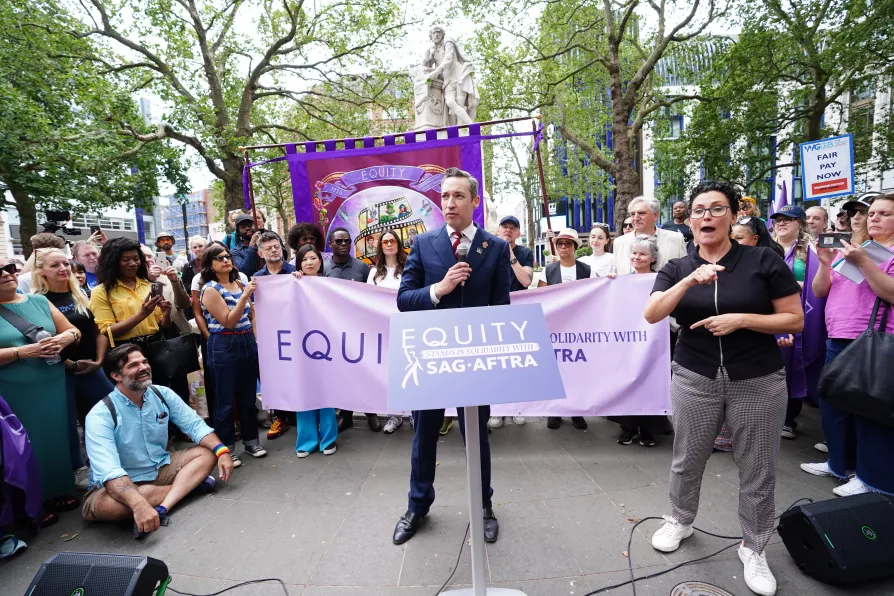Israel’s recognition of Somaliland has little to do with self-determination and far more to do with strategy, offering Israel a potential military foothold near Yemen, says JE ROSENBERG

 Equity General Secretary Paul W Fleming, speaks during a protest by members of the British actors union Equity in Leicester Square, London, in solidarity with striking Hollywood members of the Screen Actors Guild - American Federation of Television and Radio Artists (Sag-Aftra)
Equity General Secretary Paul W Fleming, speaks during a protest by members of the British actors union Equity in Leicester Square, London, in solidarity with striking Hollywood members of the Screen Actors Guild - American Federation of Television and Radio Artists (Sag-Aftra)
FRANKLIN D ROOSEVELT’S New Deal in the 1930s recognised that the performing arts and entertainment make a vital contribution to an economy, society and culture.
The programme sought to create work for tens of thousands of creative practitioners and bring the performing arts and entertainment to every part of the United States.
When a New Deal administrator was asked why the government should provide jobs for unemployed artists and performers, he replied: “Hell, they’ve got to eat just like other people.”
Equity stands in full solidarity with our sister union SAG-AFTRA as it progresses this ambition of providing decent, secure livelihoods to their thousands of members in the US today through strike action.

Artists should not be consigned to a life of precarious working – they deserve dignity and proper workers’ rights, argues ZITA HOLBOURNE

PAUL W FLEMING is unequivocal that Labour’s unpreparedness and resulting ambiguity on copyright in the creative industries has to be reined in with policies that will reverse the growing abuse by Big Tech AI












